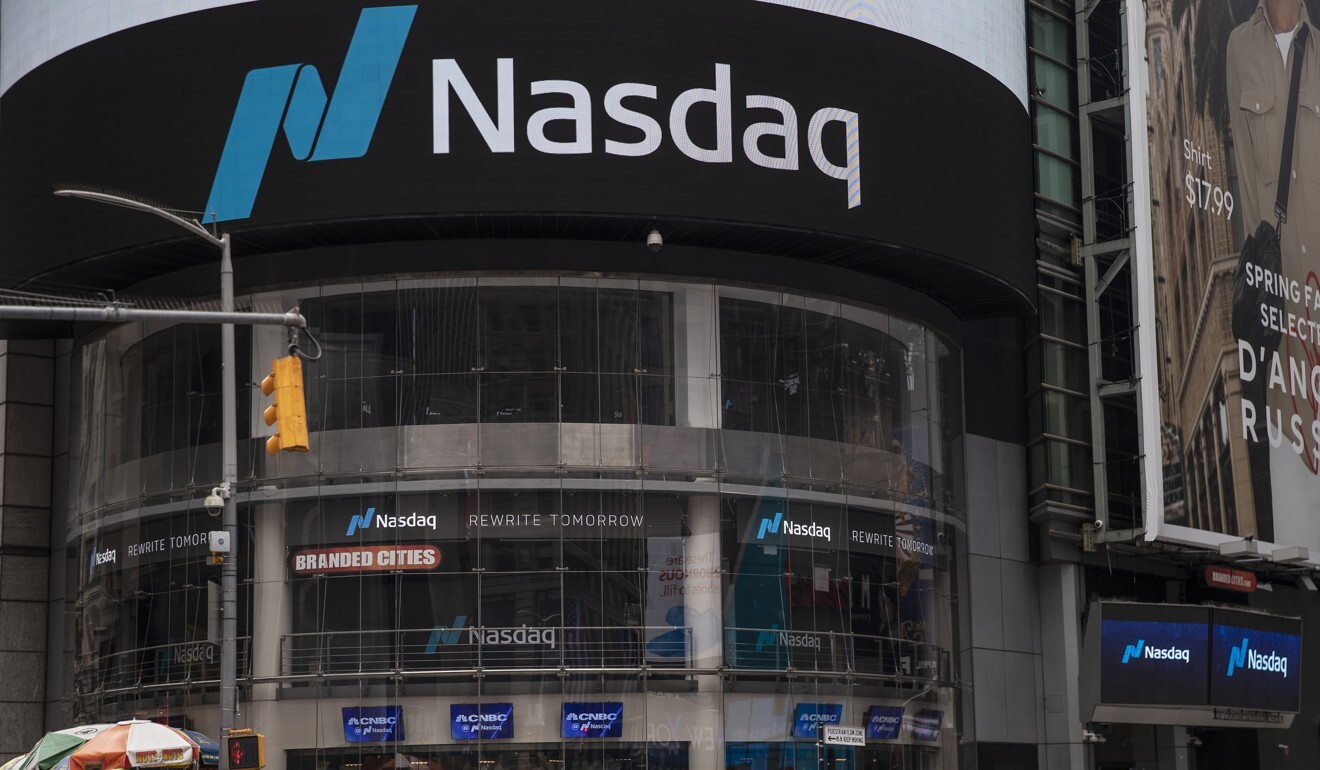
12:13
‘No winner’ amid rising US-China tensions, says Hong Kong’s commerce chief Edward Yau

Wall Street is scrambling to regulate Chinese companies listed on US equity markets to avoid intervention by US lawmakers, who have expressed bipartisan frustration over the lack of financial transparency the firms have offered even as they seek investors on American exchanges.
US securities watchdogs have been in a continuing struggle with China over inspecting the audits of the country’s US-listed companies, and Beijing has refused to comply, citing state secret laws.
A market-driven approach, industry participants said recently, would be a more effective way to stem fraudulent companies from hurting US investors. At the same time, it could help prevent an exodus of fast-growing Chinese companies from US capital markets and help US investors maintain desired exposure to China’s higher growth.
“The Chinese government really widened the moat with the revised securities law that went into effect this year,” which has made “the perpetrator of the frauds effectively beyond the reach of US law,” said Carson Block, founder and chief investment officer at Muddy Waters Capital, a California investment firm known for its short-selling strategy that profits from dropping stock prices by disclosing corporate wrongdoings.
Over the years, Muddy Waters has exposed accounting problems at several Chinese companies, most recently Luckin Coffee.

12:13
‘No winner’ amid rising US-China tensions, says Hong Kong’s commerce chief Edward Yau
What can be done, Block said, is to focus on “US arms of the auditors, of the investment banks, maybe even the lawyers” as they are “the enablers” and “look to hold them financially and materially responsible”.
He also said US headquarters of global auditing firms – Deloitte, PricewaterhouseCoopers (PwC), Ernst & Young and KPMG and the like – should be required to provide collateral for audit failures of their Chinese affiliates in the form of financial guarantees.
“This is analogous to a parent who often would bear financial responsibility for wrongdoing of their minor children,” he said.
Block’s proposal effectively advocates some self-policing by a group of Wall Street insiders, highlighting the distance American investors are willing to go to avoid having Congress decide the fate of Chinese firms in US capital markets.
The legislation at hand – the Holding Foreign Companies Accountable Act – passed the Senate unanimously in late May. If the House of Representatives approves it and it becomes law, any foreign company, including Chinese, would be required to hand over audits for US inspection or face delisting if it failed to do so for three straight years.
“It is a privilege to be a public company listed in the United States,” said Elad Roisman, who sits on the US Securities and Exchange Commission.
“The benefits of this privilege include not only access to our retail investors and their hard-earned money, but also the association with our rigorous regulatory regime, where this regime confronts challenges from companies that operate in emerging markets.”
Drew Bernstein, co-founder of Marcum Bernstein & Pinchuk, a New York-based accounting and advisory firm focused on China, said, “If [the company is] registered here, then you should be subject to inspections.”

02:32
Washington’s hardened position on Beijing’s claims in South China Sea heightens US-China tensions
“Although the Chinese companies have choices right now, and certainly choosing exchanges close to home where investors understand their companies is a big thing, the US markets are still the gold standard because they offer things that other markets don't – for example, very, very deep and diversified sources of capital,” he said.
Meanwhile, the US investment community has pushed back since the Senate passage, calling the approach “blunt” and saying such law should be “reserved as the last resort”.
The New York Stock Exchange – the world’s largest by market capitalisation, more than US$30 trillion – said last week that it would support the introduction of a separate indicator for issuers that are not set up for inspection. That would provide more transparency, especially for people who don’t typically have the means to look into each company they invest in.
Nasdaq, a US$11 trillion exchange, said last week that while it was “not opposed to the legislation”, there were still things that could be done before resorting to a new law.
“With a little centralised guidance to each stakeholder, [we can] try to ensure that we are listing companies and trading companies that deserve that status. We've taken some early steps now, but there's probably more we can do, and that legislation really should be the last resort,” said John Zecca, a Nasdaq legal and regulatory officer.
Some large US investors have defended Chinese companies, despite their lack of transparency and the low quality of documents, saying they have a place in American capital markets.

“All of our disclosures talk about the risks of emerging markets in our portfolios that include different accounting standards, different exchange standards, different risks,” said Rodney Comegys, principal global head of Vanguard Equity Index Group, managing US$5 billion.
“Emerging markets should only be a portion of a portfolio. As part of global investments, that is roughly about 10 per cent, and China only represents about 5 per cent of a globally diversified market capitalisation weighted index fund. And it gives you the benefits of diversification,” he added.
Historically, audit quality is low in China because accountants there have learned China is not going to cooperate because of the state secret law. Bernstein added that “unfortunately the [US regulators] never contemplated these problems when they registered these companies. I don’t think anybody ever really contemplated that on day one.”
One effective way to improve transparency, as Block suggested, is to hold the American auditing firms accountable.
“These auditors are happy to license out their names so that people will trust the audits coming from the ‘Big Four’ affiliates in China,” he said.
“As soon as something goes wrong, the parents of the Big Four turn around and say ‘no, no, no, not us.’ That has to change,” he said. “If they are happy to collect [fees] and try to build the value of the brands [by sponsoring] a golf tournament, they should also bear financial responsibility because the people to whom they license their brands can't be touched and can't cooperate.”